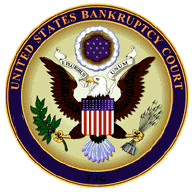Under Chapter 13 bankruptcy, you are able to restructure your debts and set up a repayment period of three to five years. You need to have regular income in order to qualify and, with this bankruptcy, the goal is to get rid of some debts and get current on ones with collateral, such as a car or home. When you file for Chapter 13 bankruptcy, you will need to work with an Indianapolis Chapter 13 bankruptcy attorney to help you through the process.
Do You Qualify for Chapter 13 Bankruptcy?
In order to file for Chapter 13 bankruptcy, you first have to qualify. To do so, you must have an income, you need to be current on tax filings, and cannot have filed for Chapter 7 bankruptcy in the last four years or Chapter 13 in the last two. Your secured debt and unsecured debt must not exceed certain amounts.
Is Chapter 13 Bankruptcy Right for You?
Chapter 13 bankruptcy may not be right for everyone. Bankruptcy should be considered if your debts are more than 40% of your annual income and it would take more than five years to pay them off, even if you were taking extreme measures. Chapter 13 may be the right choice if you have debts that won’t be discharged under Chapter 7, you want to keep certain assets, or you have a co-signer on an account.
Filing for Chapter 13 Bankruptcy
When you are considering bankruptcy, you should meet with a bankruptcy attorney and a credit counselor from a nonprofit agency. These meetings should be free and help you know whether bankruptcy is the best choice for you and your circumstances. With Chapter 13 bankruptcy, your attorney and you will work together to prove your eligibility for debt reorganization to the bankruptcy trustee. You will need court approval of the plan to repay both secured and unsecured debts, either in full or in part. You need to pay these debts within three to five years and can keep your assets. At the end of the process, the rest of the debt will be forgiven.
- Credit Counseling: You need to begin with pre-filing bankruptcy counseling using a nonprofit credit counseling agency. The agency you work with may also help you start a repayment plan.
- Work with an Attorney: You want to hire a skilled bankruptcy attorney. Chapter 13 bankruptcy is a complex process and not filling out the paperwork correctly or skipping a step can cause your case to be thrown out or not have certain debts covered and the ability to keep certain assets.
- Fill Out the Paperwork: Your bankruptcy attorney will help you fill out different forms you need to file for the process. You will also need to gather information on your financial life that includes monthly expenses, property information, income, and debts.
- Submit Your Bankruptcy Petition: This is the part that is also known as filing for bankruptcy, and you need to submit different forms to kick off the process. During this time, a bankruptcy trustee is going to be appointed. When you file, you are then in an automatic stay, which means that any attempts to collect on your debt need to stop.
- Submit a Payment Plan: Within 14 days of your bankruptcy petition, you need to submit a proposed payment plan. You need to start making your payments within 30 days of filing the petition, even if your petition hasn’t been approved yet.
- Meeting of Creditors: Between 21 and 50 days after you file your petition, the bankruptcy trustee hosts a meeting where creditors discuss issues, they have with you.
- Confirmation Hearing: Within 45 days of the meeting of the creditors, the creditors who want to, as well as the trustee, will meet with you in court and confirm the payment plan.
- Payment: Over the course of three to five years, your creditors will be paid according to what is agreed upon in the plan.
- Take a Debtor Education Course: Before the process can be complete, you will need to take a debtor education course with a nonprofit credit counseling agency.
Chapter 13 bankruptcy stays on your credit report for seven years from when you file. During this time, it’s going to be harder for you to get credit, but your credit score starts to recover as you begin to pay back your debts. In order to recover from filing Chapter 13 bankruptcy, be sure to pay every bill on time since payment history is the biggest influence on your credit score. You can also complete some other steps to restore your credit by creating a budget and being very careful with credit. If you are trying to get new credit and find it difficult, you should begin with a secured credit card.

